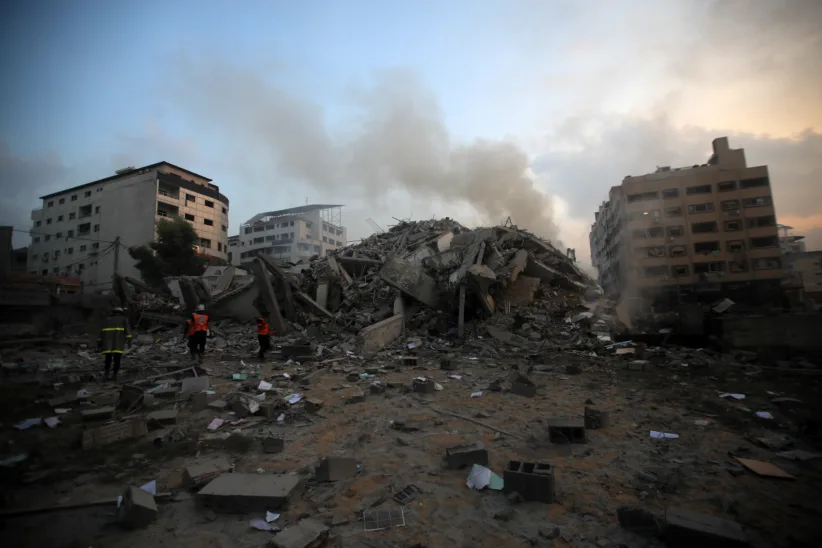Total humanitarian disaster unfolding in Gaza
The heavy bombing and attacks across Gaza continue as the lack of food, water and medicine also has started to claim lives.

"The situation is disastrous" says Gry Ballestad, head of Development and Humanitarian Cooperation in Norwegian People's Aid. "Our employees are suffering in the same way as the rest of the population in Gaza, but are still trying to find solutions that will make it possible to respond in this almost impossible context. The political violence and the conflict makes the needs more dire by the hour. The UN reports that almost half of all households experience very severe hunger".
The emergency aid entering Gaza is not near sufficient, and the lack of food and clean water has begun to take its toll, with both illness and death as a result. As we are entering the winter season, colder weather and more rain is making the situation even worse. "We know that over 60% of all housing units in Gaza have been destroyed" says Ballestad. "One can only try to imagine how life is for the people there now. The bombings are near continuos. They live in makeshift tents and are starving and don@t have enough water at the same time as temperatures are dropping to below 10 degrees celcius. The sanitary conditions are terrible, and diseases are spreading quickly. At the same time, most hospitals have been bombed and there is almost no medicine or other help available".
In a new report, the human rights organization Human Rights Watch states that Israel has deliberately cut off water, electricity and prevented fuel and humanitarian aid from entering Gaza, while at the same time destroying agricultural areas and pastures. Thus, they call Israel's actions a war crime. "We are completely dependent on getting an immediate ceasefire in place" says Ballestad. "If we are to have any people left to help, humanitarian aid must be allowed in, and access to water, electricity and fuel restored. In addition, the international community must contribute an extraordinary aid package as soon as possible, and Norway should take the lead" concludes Ballestad.
